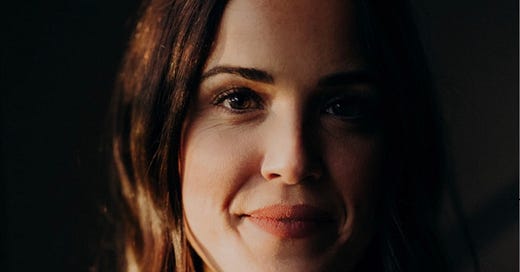Anyone who has been beset by grief will be able to tell you the point in time they realized that others had moved on and expected them to do the same. It has been two years, two months and twenty seven days since my marriage ended (I looked that up just now with an online duration calculator). It’s been more time than that since I knew what was coming and felt the profound gravity of grief.
At times divorce grief, particularly, has left me confused, I think because of my own misperception of grief itself. I have often associated peoples’ grief as a gauge for how badly they missed someone. My definition of grief centered largely around the tangible loss of someone we love and hold fondly in our memory. Over time I’ve learned grief has many other faces.
So many women I know knew they needed their marriage to end, had moved to acceptance that the relationship would not survive, found themselves happier outside of the marriage, and yet still wrestle overwhelming grief or anger for years after. I can relate, and the feeling was hard to put a finger on. I realized while I had long ago accepted the end of the relationship and the loss of a partner, what I was really grieving now was the loss of my identity and social safety. I have found the whole experience to be parallel to that of leaving the faith I was raised in.
When I left my faith, it was like getting kicked out of my own life, like being pushed off a cliff in the middle of saying, “Actually I’d like to stay if I —” It wasn’t that I suddenly despised everyone, more that it became an unnecessary choice between being honest about who I was and feeling accepted and understood. All I had known was religion, and in my earnestness I bought in, hard. Being “a follower of Christ” was the point of my existence, literally, and the point of that as far as I could tell seemed to mostly entail being a nice (non-confrontational, sweet, service-oriented) woman, to get married and have children.
My roles in religion and consequently in marriage were what made me worthy, loved, purposeful, happy. Following the rules kept me safe, praised, and told me who I was. Finally being your own hero is a drug for those of us who stood still every Sunday singing about what helpless wretches we were. I was raised under the direction of men, on the idea that women are a marginal part of the story and to be contained, while being gaslit the whole time that this position is actually quite special and pleasant for women, and they should be grateful. To question it meant something was wrong with you.
It is no small thing then to find the courage to walk away from a religion that tells you you are inherently untrustworthy and bad. You need your brain and your heart to get anywhere, and you were told not to trust either. Undoing those knots will have you feeling out of your mind.
Once you’re out, you can’t just brush off what is pretty much a part of your DNA. How can I pretend it didn’t happen? My entire frame of reference for my new self is in direct relation to recovering from my last self, and what she thought she had to do. So it felt hard - feels hard, really - to pretend as if who I am now is not an inextricable reaction to who I was.
And so it went, in many ways, with my divorce. By staying in my marriage, I was following the rules. And that kept me safe, loved, understood, accepted. Being divorced - that ripped the rug right out from under me. That was not following the rules, and that meant I grappled with whether I could be a good person or not, accepted or not, understood or not.
While writing this, it struck me that the loneliness, confusion, and sadness I felt at 27 having just left my faith feels lightyears away. A new, wiser version of myself rooted in richer soil rose up to meet me. She’s a lot of fun, she’s grounded, and she sees 27 year old me with a great deal of tenderness and care.
With that thought I ease up a little, I try out the feeling of resting in the idea that yet another new, wiser, spiritually richer me is just now taking shape, and maybe 47 year old me will be looking back at me now with just as much tenderness and care, wishing I had trusted that who I would become would catch me.



